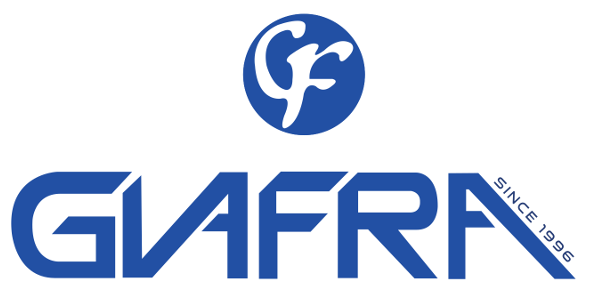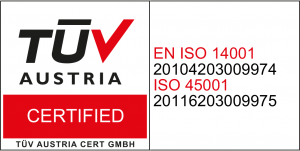The Company Certification is an acknowledgment that certifies the creation, application and maintenance of a Management and Organizational System compliant with specific reference Standards, valid at international level.
Quality Management
UNI EN ISO 9001:2015
Field of application:
“Building, restructuring and maintenance of civil and industrial. Restoration of property subject to protection. Installation of technological system such as: water and sanitation, fire protection, heating, air conditioning and electricity”.
QUALITY POLICY
The GIAFRA Srl is aware of the challenges and opportunities that the market imposes a daily basis and to meet the challenges requires rapid and successful decisions. Pursuing company effectiveness and efficiency means overcoming challenges and identifying opportunities. It is with this in mind that the organization has decided to update and establish before, obtain and then maintain a quality system that complies with the international ISO 9001: 2015 standards, which allows for greater internal efficiency and better efficiency. predisposition to demonstrate its ability to provide products that i know of disfino customer requirements and applicable regulatory requirements, enhancing customer satisfaction, addressing risks and opportunities associated with its context and its aims. In the implementation of its GIAFRA mission Srl has planned and activated a company quality management system based on the following values:
• Organizational Context , by determining internal and external factors that may influence the ability to achieve results;
• Understanding the needs and expectations of the Interested Parties for the Quality Management System;
• Determination of its Field of Application : ” BUILDING, RENOVATION AND MAINTENANCE OF BUILDINGS. INSTALLATION OF HYDRAULIC SYSTEMS, HEATING, AIR CONDITIONING AND ELECTRICAL. (IAF28) “;
• Determination of Risks and Opportunities considering the Organizational Context and the needs and expectations of the parties involved, for each process related to the products / services present in the Scope;
• Customer satisfaction , by respecting the contractual commitments (implicit and explicit) assumed, offering an effective assistance service and adopting a correct and transparent communication in all phases of the relationship;
• Strengthening of its image and reputation on the market, aimed at maintaining positions in the market areas in which it already operates and entering new market areas;
• Effectiveness in achieving the economic results budgeted;
• Efficiency in the management of processes, preventing and reducing inefficiencies of company processes, through the pursuit of continuous improvement of the quality of services;
• Enhancement of human resources able to successfully assume and manage tasks and responsibilities.
Furthermore, the company considers it particularly important and therefore to be pursued:
• Respect for the environment and current environmental legislation (waste management, consumption of energy resources, management of emergencies);
• supervision of activities relating to health and safety in the workplace , including through a firm compliance with the current regulations in terms of plants, equipment, organizational aspects, operating procedures, etc.
Vision:
• contain costs and work times in order to offer a competitive selling price;
• contain prices with reference to market levels and consistent with labor and materials costs;
• enhance and increase the partnerships and alliances with which to operate synergistically to best grasp the opportunities offered by the market and to enter new business areas;
• pursue the growth of know-how in terms of knowledge and skills of human resources to be adapted to the commitments and interpreters of change;
• shape the organizational structure according to criteria of flexibility and dynamism, involving and motivating all staff , to adapt quickly to changing market conditions;
• loyalize its customers through a work of listening and assistance keep it going it is satisfying.
The Management believes it is essential to continuously compare with its competitors and, on the other hand, try to better meet the needs of its customers, as the best incentive to pursue continuous improvement, viable with the Quality Management System, through:
• detection of customer satisfaction (perceived quality), through the administration of specific questionnaires;
• verification of compliance with the contractual commitments (implicit and explicit) undertaken;
• monitoring of the defined economic and financial objectives;
• monitoring of the defined process objectives;
• timely analysis and management of non-conformities and complaints;
• periodic review of the processes, procedures adopted and results achieved;
• adoption of corrective or improvement actions adopted following analysis of non-compliance, complaints, customer satisfaction surveys, particular objectives;
• incoming quality control through a systematic analysis of its suppliers, contractors, collaborators;
• verification of compliance with the regulatory obligations / obligations, paying particular attention to the protection of the health of its employees and third parties and to the protection of the environment.
The Management is therefore constantly committed to:
1. Check that the Company Policy stated is disseminated to all personnel, acknowledged and supported by the sector managers and correctly implemented.
2. To solicit the correct application of the Company Quality System by all personnel, who are responsible for the quality of the results of their activities, for the fulfillment of regulatory requirements and the fulfillment of the requirements referred to the Institutional, Control and Accreditation body.
3. To provide the resources to guarantee the continuous improvement of the company Quality System, delegating the continuous control to the Quality Manager to verify its constant adequacy and correct application.
4. Comply with the provisions of the reference standards (UNI EN ISO 9001: 2015).
5. Periodically review the Company Quality System, the Policy on the occasion of Management Reviews, and make it available to interested parties, and within its own Organization.
ENVIRONMENTAL POLICY
The defense of the environment and the systematic control of the environmental aspects of its productive and commercial activities are an integral part of the general policy of Giafra.
To this end, the company implements its own Environmental Management System that meets the requirements of the UNI EN ISO 14001: 2015 standard, pursuing continuous improvement as the basic principle of daily practice.
In addition to scrupulously observing the current legislation and the environmental regulations applicable to its activities as well as the commitments freely undertaken, Giafra undertakes to respect the following principles:
-
ensure that its activities are carried out in compliance with the current provisions of law and with any signed codes of practice;
-
implement and maintain over time an effective Environmental Management System according to the requirements of the UNI EN ISO 14001: 2015 Standard;
-
implement every effort in organizational, operational and technological terms to prevent pollution, water, air and soil, as well as to minimize the consumption of energy and water and the production of waste, encouraging its recovery wherever possible;
-
ensure that environmental policy and the environmental management system are implemented and maintained at all levels of the organization and are supported by training and training activities;
-
maintain open and constructive relationships with the bodies of the Public Administration, with the communities in which the Company operates, and with associations, groups and individuals who have a legitimate interest in the environmental performance of the Company
-
continuously stimulate knowledge, environmental sensitivity and involvement of collaborators even with adequate and regular training sessions;
-
adopt the technologies available on the market that offer the best environmental performance where appropriate and economically feasible.
SECURITY POLICY
In order to implement a Safety Management System in the Workplace, the General Management of Giafra assumes the commitment to verify, with renewed attention, the needs and expectations of the customers and staff involved in the company activity.
Giafra, in fact, sets itself the priority objective of adopting the security policy as an indispensable element for safeguarding the safety and health of people, considering this policy as an integral part of the company’s management system.
Our aim is to operate in compliance with the safety of our employees, our customers and the people who live near our operating sites, preventing accidents and mitigating any harmful effects on people, property and the environment.
The objective of Giafra is to continuously improve training within the organization and to develop a “safety culture”, thus obtaining a series of advantages and savings such as the reduction of accidents, the prevention of the onset of occupational diseases. , reduction of turnover for the replacement of the injured and sick, reduction of the risks of administrative and penal sanctions. The reference standard adopted is the OHSAS 18001: Occupational Health & Safety Assessment Series.
We therefore commit ourselves to:
-
Monitor all activities that affect the safety of company activities, so that all the technically and economically viable solutions are adopted, to prevent any form of risk or damage or illness for employed workers;
-
Pursue the involvement of all staff for a constant improvement of the sense of responsibility towards safety and to provide adequate training at all levels;
-
Ensure the regulatory compliance of its activities with the laws and regulations issued at any level regarding safety and health;
-
Ensure that, before the implementation of new activities, the possible risks to the safety of workers are verified and that the technological and strategic solutions designed to prevent and minimize them are assessed;
-
Adopt state-of-the-art technical measures to prevent any form of accident, improving the existing situation over time;
-
Ensure maximum attention to the risks to the safety of workers, making itself available to an open and honest dialogue with the public authorities and with the external community to understand the forms of risk and accidents deriving from the activities;
-
Ensure that third parties working in the company area apply the same safety standards established by the Management.


